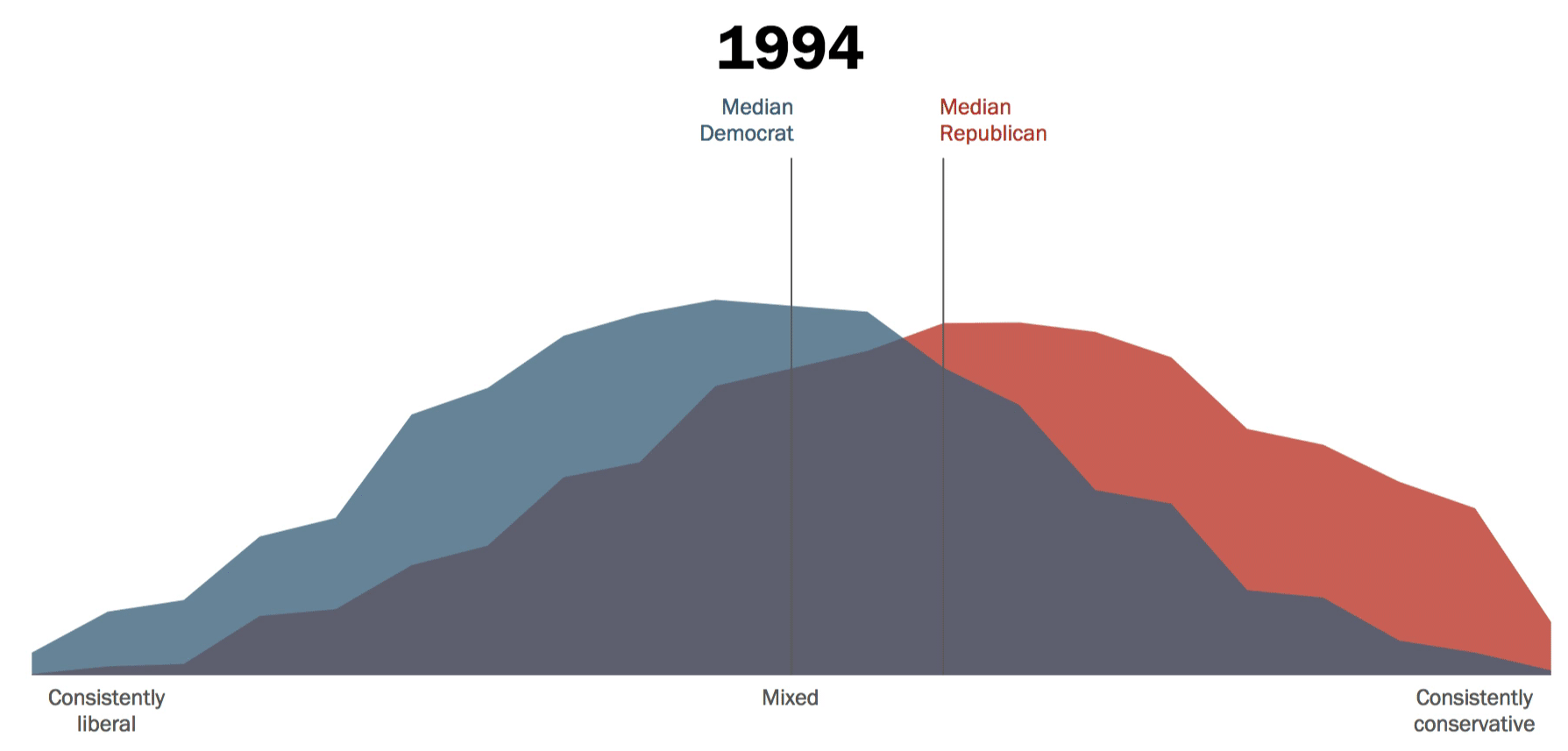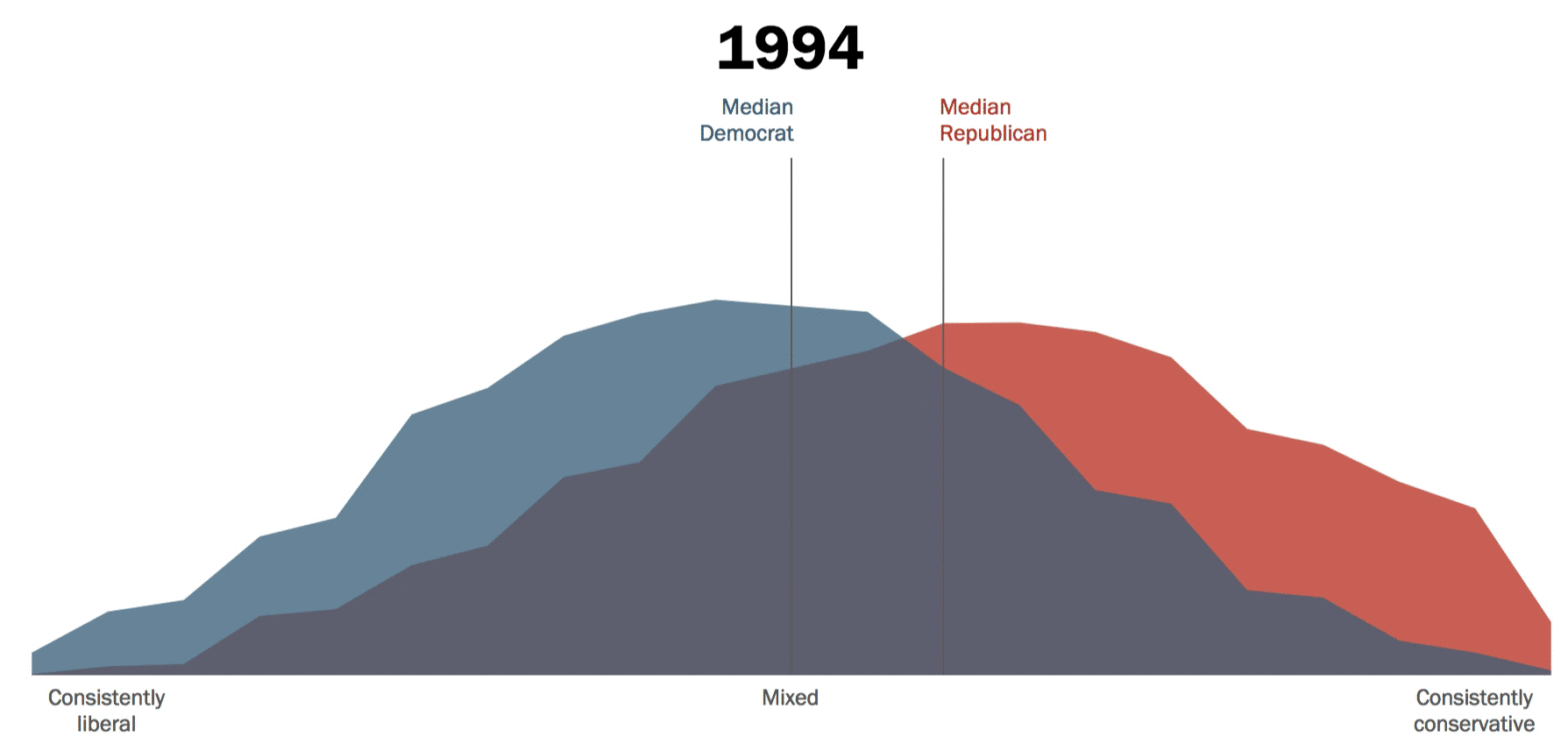Just before the 2020 general election, a friend on Twitter paraphrased a famous quote that says, “if you don’t stand for something, you’ll fall for anything.” And later, another friend on Whatsapp said, “you have to take a side. Not taking a side, in the face of what we are seeing, is actually taking sides.” The narrow margin of victory suggests such anecdotes may be shared by a large portion of the population.
Many journalists also struggle with the issue of taking sides. Most were trained to write in an objective manner and keep their opinions out of the story. But this style has lately been accused of having the “view from nowhere” (i.e., reporting information on “both sides” and possibly implying false equivalence when one side is obviously right). Perhaps it is no surprise that the level of opinionatedness has gone up in journalism.
For individuals in the general public who want to be well informed, what are the implications of increasing partisanship in our communities and rising opinionatedness in the news? Should we remain loyal to our favorite news sources or challenge our perspectives by reading information we disagree with?
At a fundamental level, can you remain unbiased when reading the news?

Source: Pew Research
Please check your email for instructions to ensure that the newsletter arrives in your inbox tomorrow.
Multiple perspectives crucial to combating partisanship
While many readers want unbiased news, a basic truth is that everyone is subject to biases. While some reporters and news sources claim these biases explicitly, others are less aware and may frame facts and arguments in a way they feel is truthful yet remains colored by their own experiences and beliefs.
Because of pervasive bias, a rising level of opinionatedness in journalism is not necessarily cause for alarm and reinforces a core precept of reading the news: that no single article or source will present all the facts and arguments for an issue. Hence the importance of reading multiple perspectives, ideally across the political spectrum.
Incidentally, this practice is more common in the history of news consumption than we think. In the days of print news, many households received multiple dailies, often representing different political viewpoints.
False equivalence concerns may be overstated
When reading multiple perspectives, we must challenge ourselves to think critically. Here are some questions to consider:
- What facts are presented and are any left out?
- What’s the history of this issue and are there trends in the data presented?
- What can we learn from other countries/locations that can inform our understanding?
When provided with all of the facts and varying viewpoints, and some time to think things through, most readers are equipped to draw accurate conclusions. Veteran journalists such as Matt Taibbi recommend empowering readers to be independent thinkers as a best practice. It also means that worries about false equivalency may be overstated because people can judge for themselves if they believe the evidence supporting one side even if the other side was presented in as much detail.
As an aside, this is how we conduct jury trials — we assume that a panel of average citizens, presented with the facts arguing for and against a conviction, will reach the right conclusion most of the time. So why not expect the same of our society when it comes to reading the news?
Please check your email for instructions to ensure that the newsletter arrives in your inbox tomorrow.
Bias is OK, empathy is better
Just as all writers are biased, so too are all readers. Reading the news doesn’t require us to put aside our biases or opinions. Rather, reading the news is a way to get the facts and arguments for and against an issue so that whatever opinions you hold are grounded in the facts.
Finally, by reading multiple perspectives, even if your opinions and biases don’t change, you may develop empathy for people who have viewpoints different than yours. A more empathetic society is something to strive for in a world that seems increasingly divided.

